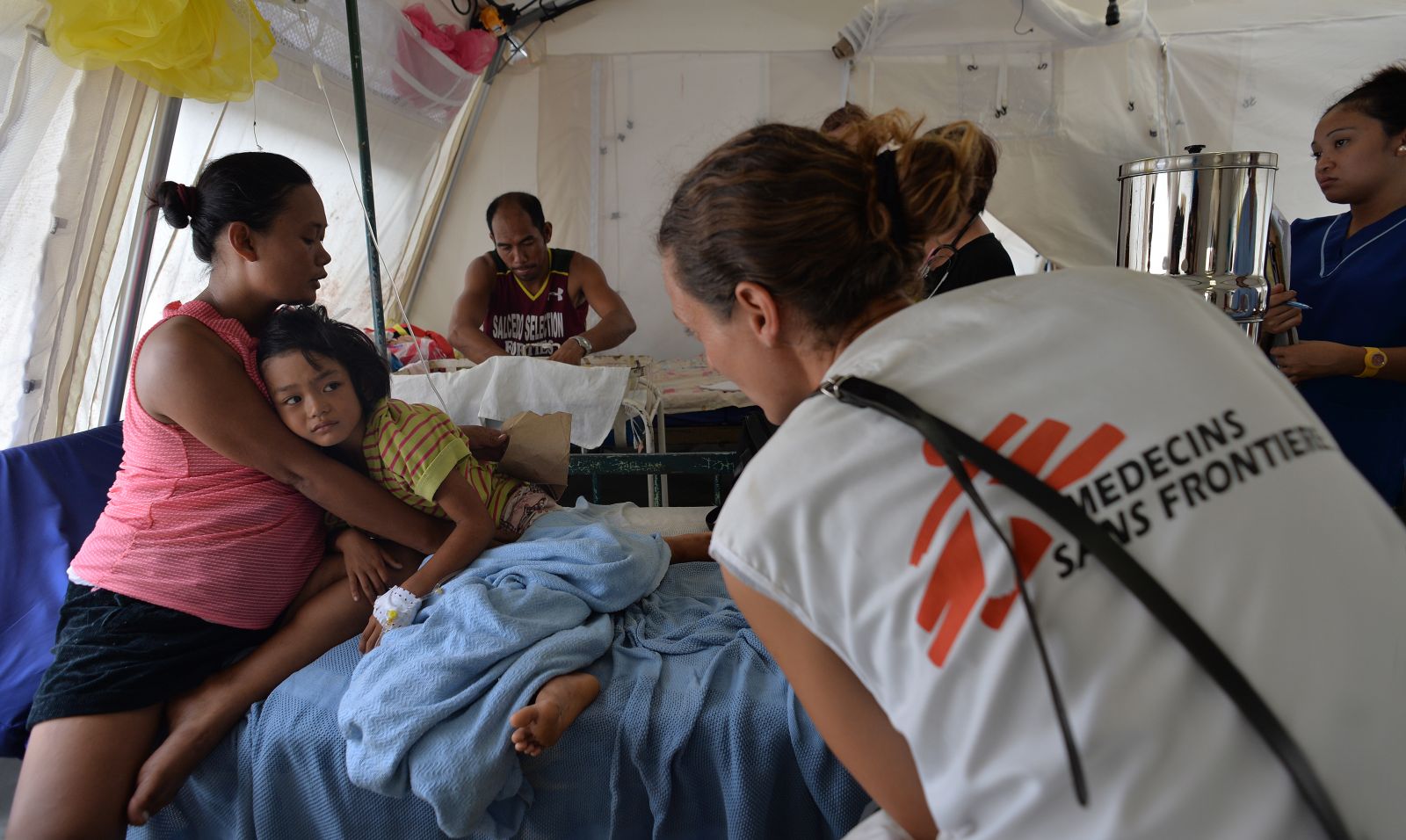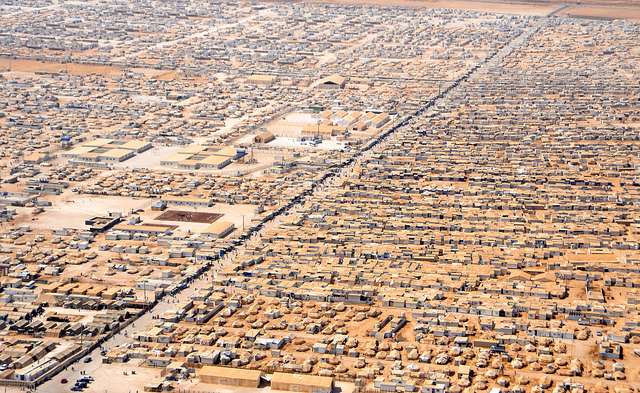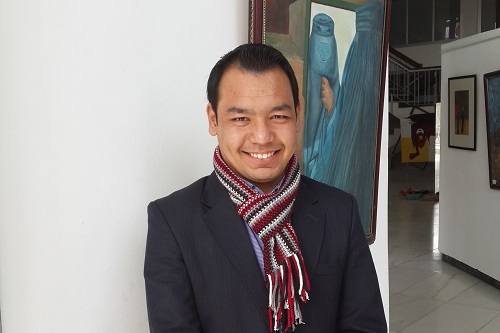WORKING in a conflict zone demands passion, determination and the ability to work alongside people with diverse cultures, religions and world views. Whether you’re distributing food in refugee camps, fixing a computer network, administering medicine or investigating possible crimes against humanity, it’s unlikely to be as glamorous as you’ve been led to believe. You might think organisations working in these no-go areas would be glad of any help they can get. But people without the right skills or attitude can be more of a hindrance than help so recruitment can in fact be highly selective and competitive. Here is the lowdown on five potential careers in the field.

1. Medic
During armed conflict emergencies and their aftermath, doctors and nurses work with sanitation experts, administrators and locally-hired staff to run hospitals and clinics, perform surgery, tackle epidemics, carry out vaccination campaigns, operate feeding centres for malnourished children and offer psychological support.
The best-known medical humanitarian organisation is Médecins Sans Frontières/ Doctors without Borders, which has recruitment offices around the world. They are particularly seeking emergency, family and intensive care physicians, paediatricians, infectious disease specialists, obstetricians and general practitioners. Training in infectious diseases such as HIV/AIDs and TB is an advantage as is expertise in public health, tropical medicine or minor surgery.
Physicians need at least two years relevant professional experience (this can be done by completing a residency with the organisation) and usually need to be available for at least nine months. Experience of living or travelling abroad is essential as is experience as a supervisor, teacher or trainer
Flexibility, adaptability and the ability to work and live with a diverse group and commitment to MSF’s principles are also a requirement. Basic computing skills are a must and competent language skills are an asset, especially French, Spanish, Portuguese, Russian or Arabic.
2. Humanitarian aid worker
Unless you live in a country affected by conflict, breaking into the world of humanitarian aid is harder than it looks considering the dire need globally.
This is because 90 per cent of relief work is carried out by locally-hired people who understand the culture, language, infrastructure and systems.
Also, the non-governmental organisations that hire the majority of aid workers are less likely to run graduate recruitment campaigns and more likely to hire people from within their networks as and when projects arise.

As might be expected, field experience is essential, so the most common route into a career is through voluntary work. There is no hard and fast rule about what you must study at university, unless you want to work in a specialist field such as health, finance or engineering.
Jobs include refugee camp volunteer, a strategist in a micro credit program or the founder of a health program in a conflict or post-conflict zone.
Humanitarian aid workers have to be efficient at managing budgets, full of ideas to tackle emergencies, and competent at producing response reports and recommendations.
Some humanitarian and development aid workers do receive large salaries, especially if their programs are backed by foreign donors, but in general it’s not a job to go into for the money. Most people start as volunteers, otherwise at least three years of work experience is required before you can be deployed to a conflict zone.
Field experience counts as do enthusiasm, communication skills and a cool head. Aid workers, especially those working in refugee camps, should be prepared for difficult living conditions such as sparse electricity and water, roach and rodent infestations and cramped apartments.
Nick MacDonald, who runs a humanitarian jobs blog, has a surprising suggestion for breaking into relief work - train as an accountant.
“Most people who go into accounting don’t do it so that they can go live in a developing country and earn much less than they could in their home country, and most people who want to live overseas don’t pursue accounting. The practical upshot of this is that there is always a struggle to find good, qualified admin and finance staff who are willing to put up with the pay and conditions of international development organizations.”
Nick also has some advice for people making their first approach humanitarian organisations.Show some humility but don’t be sycophantic or flattering, he warns.
“Aid workers tend to find that embarrassing and a sign of naivety.”
3. Journalist
One of the most underpaid and undervalued jobs is that of war correspondent. Before the 1990s it was relatively safe to be a war correspondent but after journalists in Bosnia were targeted the international community failed in chartering laws that could successfully provide war correspondents with security, and since then the situation has deteriorated. Many media organizations find it cheaper to publish a freelancer’s work rather than employ war correspondents to whom they would have to provide benefits.

A journalist should be fluent in the local dialects of the region they will report from, and have detailed knowledge about the politics of the country.
A degree in politics, economics, law, theology, anthropology or languages is likely to stand you in better stead than studying journalism for three years.
Photojournalist Moh Sayed Madadi is based in Kabul, Afghanistan, and writes for the American-based Foreign Policy magazine. His biggest challenge is security, he says.
“Security is a major issue and the lack of cooperation in the government side makes it messier. In cases and places where there is minimal involvement of the government, the work is risky and time-consuming... on the other hand, when you travel out of the city, if the insurgency knows that you report for a foreign publication, you are in big trouble.”
Journalists in conflict zones don’t just contend with one enemy, Moh adds. They have to be wary from all sides.
4. Technician
Technology is at the vanguard of warfare and constant communication is crucial for winning battles. The role of an IT or communications technician in a conflict zone might include providing and maintaining desktop support, installing network fiber optic cables, programming routers, and maintaining satellite communication systems, VoIP and cellular phones.Sometimes when technicians are involved in long-term projects they may also be in charge of developing software, flash products, banking services, and IT consultancy.
Employers for such jobs prefer that the candidates have some experience in tackling various types of IT/Communications problems as opposed to being experts in tackling one specific kind of problem. This is because it is more feasible to hire and provide security to a smaller group of people with a diversified skill set rather than hiring one expert technician for each type of software-related problem. Candidates are usually required to have command over Windows XP, Citrix and SAP programs, especially if they are working for the US army abroad. Unlike journalists, war-time technicians are highly valued and well-paid. This is because this career needs a solid degree in engineering, as opposed to journalism, which does not necessarily require a professional degree. However, technicians working in war zones should be ready to face power cuts and inconsistent Internet connectivity.
5. War crime investigator
National governments and civil society alone do not possess the networks, technical tools and international mandates to fully tackle crimes against humanity such as genocide, drone attacks and wrongful incarceration. This job falls to organizations such as the United Nations, the Institute for International Criminal Investigations and Interpol.
War crime investigators find and interview witnesses who are willing to appear in court, research and record all the facts associated with a crime and evaluate forensic evidence present at a crime scene. Most international war crime investigators were once part of their country’s security forces and have a variety of academic backgrounds.
Before Carry Spork became an Investigator with the International Criminal Tribunal for the Former Yugoslavia, for example, he worked with the Dutch Police Force for 17 years:
“Getting deployed to war zones is not for the faint of heart... As an investigator, it is my job to work in the field and approach and recruit high level witnesses to war crimes who are willing to go on the record and give statements or evidence that will implicate their own people. It goes without saying this can be difficult. Not only can they be held responsible for their crimes, but their lives can also be on the line due to the information they give us. Their testimony is extremely valuable because it is needed to successfully prosecute war criminals.”
Once you are accepted into an international investigation program, you will undergo at least six months of intense training about cultural and language expectations in the region you will be working in. You will also receive training in investigative interview skills, analysis skills, documenting scenes of war crimes and sensitivities of investigating sexual and gender-based war violence.
Donatella Rovera leads Amnesty International's field investigations into violations of international humanitarian and human rights and has travelled to some of the world's most dangerous conflict zones to document human rights violations in crisis situations. In a recent article for Professionals in Humanitarian Assistance and Protection she said the main challenges for investigators are gaining access to relevant areas, distinguishing between real and manipulated or contaminated evidence, getting accurate statements from traumatised or intimidated witnesses and the viral spread of false rumours.
“Even if they disregard it, investigators must be alert to the fact that disinformation and misinformation can contribute to shaping the perception of events, the narrative surrounding the events, and the behaviour of people who take it in good faith and internalize it, including victims, witnesses, and others potential sources.”
For more articles about graduate careers, follow us on Facebook.